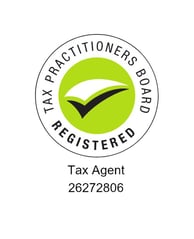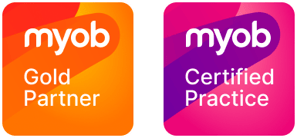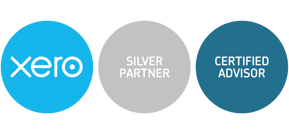You in a safe Hands
Xero vs MYOB: A Comprehensive Comparison of Features and Capabilities
Xero vs MYOB: A Comprehensive Comparison of Features and Capabilities
2/4/20253 min read


Introduction to Xero and MYOB
Xero and MYOB are two prominent players in the realm of cloud-based accounting software, each catering to the needs of small and medium-sized enterprises (SMEs). Established in 2006, Xero has quickly built a strong reputation for its user-friendly interface and robust functionality, appealing primarily to entrepreneurs and businesses seeking an intuitive accounting solution. MYOB, originating in Australia in 1980, holds a long-standing position in the market, offering comprehensive accounting services tailored for both small and larger businesses across various industries. While both platforms are designed to facilitate financial management, they have distinct approaches and target audiences.
Xero and MYOB (Mind Your Own Business) are both popular accounting software solutions designed to help small to medium-sized businesses manage their finances. Here’s a comparison of the two based on various factors:
1. User Interface and Ease of Use
Xero: Known for its modern, user-friendly interface. It is often praised for its intuitive design and ease of navigation, making it accessible for users who may not have a strong accounting background.
MYOB: Traditionally has a more complex interface, which can be intimidating for new users. However, recent updates have improved its usability, though it still tends to be more suited for users with some accounting knowledge.
2. Features
Xero: Offers a comprehensive set of features including invoicing, bank reconciliation, payroll, inventory management, and expense tracking. It also supports multi-currency transactions and has strong integration capabilities with other business tools.
MYOB: Also provides a robust set of features including invoicing, payroll, tax management, and inventory tracking. MYOB tends to have more advanced features for inventory management and job costing, which can be beneficial for specific industries.
3. Integration
Xero: Excels in this area with a wide range of integrations available through its marketplace. It can connect with over 800 third-party apps, including CRM, project management, and e-commerce platforms.
MYOB: Offers fewer integrations compared to Xero but still supports key integrations with major business tools. MYOB’s integration capabilities are growing but are not as extensive as Xero’s.
4. Pricing
Xero: Offers three main pricing tiers: Early, Growing, and Established. Prices are generally competitive, and Xero provides good value for the features offered. However, it can become more expensive as you add more users or advanced features.
MYOB: Also offers multiple pricing plans, including Essentials, AccountRight, and Business. MYOB’s pricing can be higher, especially for more advanced features, but it often includes more comprehensive support and training options.
5. Support and Training
Xero: Provides a range of online resources, including a help center, video tutorials, and community forums. However, phone support is limited and may not be available in all regions.
MYOB: Known for its strong customer support, including phone and email support, as well as extensive training resources. MYOB often includes personalized support options, which can be beneficial for businesses that need more hands-on assistance.
6. Scalability
Xero: Highly scalable and suitable for businesses of various sizes. Its cloud-based nature allows for easy scaling as your business grows.
MYOB: Also scalable but may require more effort to transition between different plans or versions. MYOB’s desktop versions can be less flexible compared to Xero’s fully cloud-based solution.
7. Mobile Access
Xero: Offers a highly functional mobile app that allows users to manage their finances on the go, including invoicing, expense tracking, and bank reconciliation.
MYOB: Provides mobile access as well, but the functionality can be more limited compared to Xero. MYOB’s mobile app is improving but may not offer the same level of convenience.
8. Security
Xero: Uses advanced security measures, including two-factor authentication and data encryption, to protect user data. Being cloud-based, it also benefits from regular updates and security patches.
MYOB: Also employs strong security measures, including data encryption and secure login processes. MYOB’s desktop versions may require additional security measures from the user’s side.
Conclusion
Xero is generally better for businesses looking for an easy-to-use, cloud-based solution with strong integration capabilities and a modern interface.
MYOB may be more suitable for businesses that need advanced inventory management, job costing features, and prefer more comprehensive customer support options.
Ultimately, the choice between Xero and MYOB will depend on your specific business needs, budget, and preference for certain features or support options. In terms of overall efficiency, both platforms excel in managing financial tasks but may cater better to certain business types. For startups and smaller entities seeking cloud-based convenience, Xero stands out, whereas MYOB may be more suitable for companies looking for comprehensive enterprise solutions. As businesses evolve, the adaptability of accounting software will remain crucial, and understanding the strengths and weaknesses of options like Xero and MYOB is essential for selecting the best fit. Future trends in accounting software seem poised to emphasize automation, data analysis, and integration capabilities, setting the stage for ongoing innovation in this sector.
Still can not decide , consult a AFSAA your trusted tax professional .
The information shown on this website is general information only, it does not constitute any recommendation or advice and as such it has been prepared without taking into account your financial situation, specific needs or objectives
Get in touch
Contact us if you have any questions or to book free initial appointment
Contact AFSAA email us at admin@afsaa.com.au
Hany Berty (FCPA)
Tel: 04 9104 8800
Tel: 08 6384 6203







